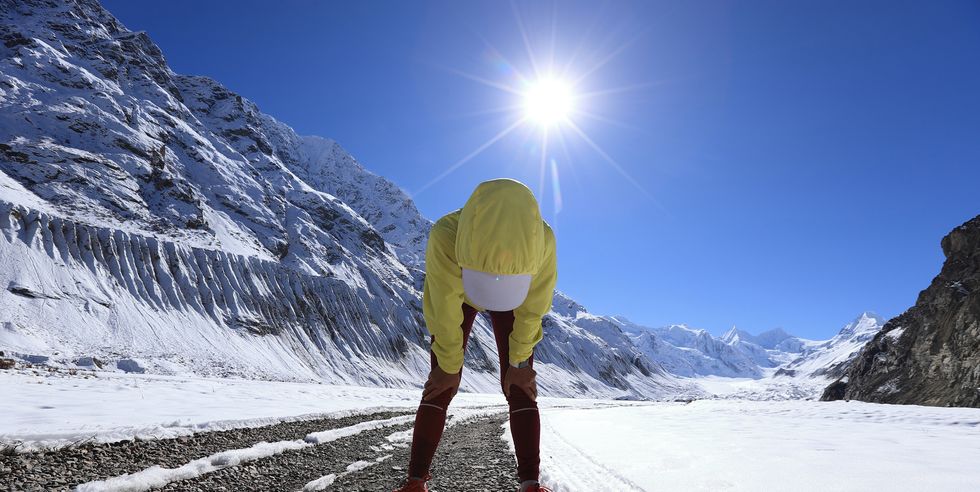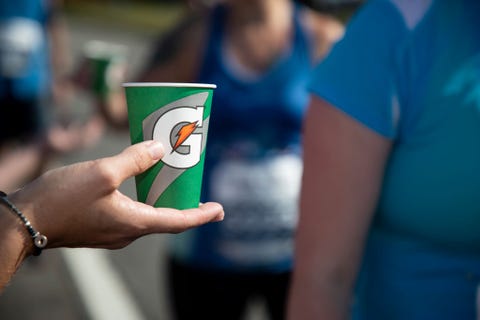Nausea After a Workout: The Reasons…. The Reasons Running Can Make You Feel Sick
For those who believe spilling your guts is a sign of a race well run, it’s not.
THE FOLLOWING WRITTEN CONTENT BY MEGAN HETZEL AND THE RUNNER’S WORLD EDITORS

Unless you have ironclad guts, there’s a good chance you’ve thrown up thanks to running or become nauseous after a workout. Upchucking is an unpleasant occurrence that doesn’t discriminate between weekend warrior or seasoned pro—just take the end of the 2020 Marathon Project race in Arizona. Finishing second overall, Noah Droddy ran a huge personal best of 2:09:09, putting him ninth all-time among American runners. But as he told the Citius Mag podcast following his huge race, he was battling nausea the final few miles, and it’s a common occurrence when he races. “To be honest, I’ve thrown up after every marathon I’ve done. Stop. Throw up. No pause,” he said on the podcast.

So no, feeling some nauseous won’t necessarily sidetrack your entire effort, but knowing its possible causes is essential if you want to avoid regurgitating after (or during) a tough run. If you’ve ever found yourself draped over a trashcan after picking up your race medal, here are some possible reasons for your gut’s dissatisfaction—and the ways you can try combating it.
A digestive system shutdown

When you’re running, oxygen-rich blood is directed away from the stomach and other nonessential organs and sent to your lungs, heart, and other working muscles that need it more during high-intensity efforts. Because your stomach doesn’t have the normal resources to digest nutrients as efficiently as usual, this might be why you end up tossing your cookies, especially if you consume too much fuel while running or too soon after you finish.
Running while it’s hot and humid outside also produces the same result because blood flow is redirected to the skin as a means to cool down the body. To avoid it, practice fueling during training runs to dial in on how much fuel your stomach can handle on race day, says Carwyn Sharp, Ph.D., a Colorado Springs-based exercise physiologist and sports nutritionist. And if you’re consuming energy gels or other sugary foods, try to ingest them with water to aid in digestion. Even when you’re not working out, simple sugar is hard to break down, so downing too much sports drink or gels all at once could spell trouble. Read more from Runner’s World.





